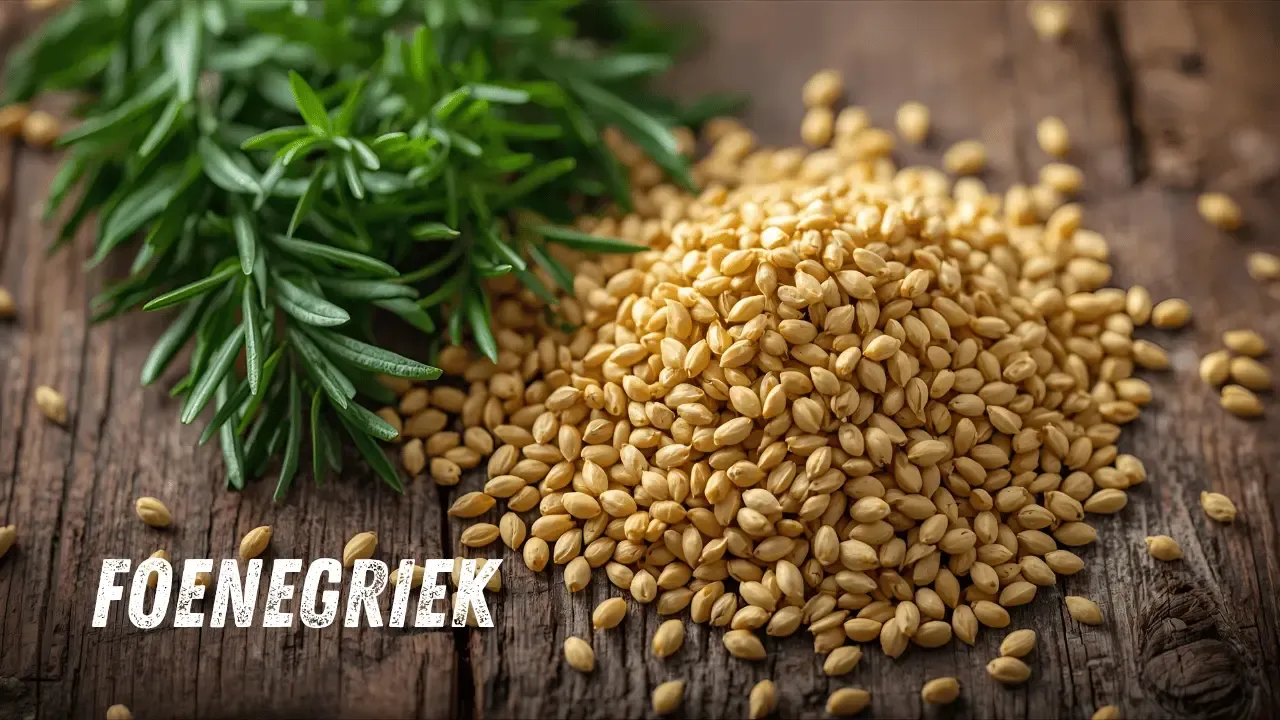Have you ever heard of foenegriek? This unassuming spice, also known as fenugreek, has been a staple in kitchens and medicine cabinets for centuries. Its rich history spans cultures from ancient Egypt to Indian cuisine, where it’s cherished not only for its unique flavor but also for its impressive health benefits. Packed with nutrients and medicinal properties, foenegriek is gaining recognition in modern wellness trends. Whether you’re looking to enhance your diet or explore natural remedies, this tiny seed could be the powerhouse ingredient you’ve been missing. Let’s dive into why you should consider adding foenegriek to your daily routine!
Historical and Cultural Background
Foenegriek has a rich history that dates back thousands of years. Ancient Egyptians valued it for its medicinal properties, using the seeds in traditional remedies and even as offerings in tombs. This highlights its significance in their culture.
In Indian cuisine, foenegriek is cherished not just for flavor but also for its health benefits. It’s a key ingredient in various dishes, from curries to spice blends like garam masala.
Additionally, ancient Greeks and Romans recognized foenegriek’s potential as both a culinary herb and a natural remedy. Its journey through time showcases how this humble seed has woven itself into diverse cultures around the world.
Nutritional Profile of Foenegriek Seeds
Foenegriek seeds are a powerhouse of nutrients. They contain a rich array of vitamins and minerals, including vitamin C, B vitamins, and essential minerals like iron and magnesium. These nutrients play vital roles in various bodily functions.
In addition to vitamins and minerals, foenegriek is high in fiber. This can aid digestion and help maintain stable blood sugar levels. The soluble fiber found in these seeds promotes a healthy gut microbiome.
Moreover, foenegriek seeds are known for their protein content. With all nine essential amino acids present, they serve as an excellent vegetarian protein source that supports muscle health and overall wellness.
Health Benefits of Foenegriek
Foenegriek, known for its rich nutritional profile, offers numerous health benefits. It’s especially praised for supporting digestive health. The seeds are high in fiber, which can help alleviate constipation and promote regularity.
Additionally, foenegriek may aid in managing blood sugar levels. Research suggests that it can improve insulin sensitivity and reduce blood glucose spikes after meals. This makes it a promising option for those with diabetes or at risk of developing the condition.
The seeds also possess anti-inflammatory properties that can support heart health. They may help lower cholesterol levels and reduce the risk of cardiovascular diseases, making them an excellent addition to a balanced diet.
Traditional and Modern Herbal Medicine
Foenegriek has played a significant role in both traditional and modern herbal medicine. Historically, it was used in ancient Egypt for various ailments, including digestive issues and inflammation. Its seeds were often brewed into teas or infused into oils.
In contemporary practice, foenegriek is recognized for its myriad health benefits. Herbalists recommend it for boosting lactation in nursing mothers and managing blood sugar levels.
Modern research supports these traditional uses, highlighting the seed’s antioxidant properties and anti-inflammatory effects. As more people turn to natural remedies, foenegriek is gaining popularity as a versatile addition to wellness routines worldwide.
How to Use Foenegriek in Daily Life
Foenegriek can easily be incorporated into your daily meals. Add the seeds to smoothies for a nutritious boost or sprinkle them on salads for an earthy flavor. They can enhance both taste and health benefits.
You can also brew foenegriek as a tea. Steep one teaspoon of crushed seeds in hot water for about 10 minutes, creating a soothing drink that supports digestion and overall wellness.
For those seeking convenience, consider using foenegriek supplements available in capsule form. This method ensures you receive its beneficial compounds without altering your diet significantly while still enjoying its advantages.
Potential Side Effects of Foenegriek
Foenegriek is generally safe for most people, but it can cause some side effects. Some individuals may experience gastrointestinal discomfort, including bloating or diarrhea. This reaction is typically mild and subsides with reduced intake.
Allergic reactions are possible as well. Symptoms might include skin rashes or respiratory issues in sensitive individuals. If you have a known allergy to legumes, caution is advised when trying foenegriek.
Pregnant women should also be cautious since high doses may stimulate uterine contractions. Always consult a healthcare professional before adding new supplements to your diet, especially if you’re pregnant or nursing.
Recent Studies and Insights
Recent studies have started to spotlight foenegriek’s diverse health benefits. Researchers have found that its seeds contain compounds known to support blood sugar regulation. This discovery is particularly beneficial for individuals managing diabetes.
Another area of interest is foenegriek’s impact on cholesterol levels. Clinical trials suggest it may aid in reducing LDL cholesterol, thus promoting heart health. Such findings are encouraging for those seeking natural ways to manage their lipid profiles.
Additionally, ongoing research explores the anti-inflammatory properties of foenegriek. Early results indicate potential in alleviating conditions like arthritis and other inflammatory disorders, paving the way for future therapeutic applications.
Growing and Storing Foenegriek
Foenegriek, commonly known as fenugreek, is easy to grow at home. It thrives in well-drained soil with plenty of sunlight. You can plant the seeds directly into your garden or use pots if space is limited. Ensure regular watering without over-saturating the soil.
When it comes to harvesting, wait until the pods turn brown and dry out completely. This usually happens about three months after planting. Carefully collect the pods and allow them to air-dry for a few days before removing the seeds.
For storage, keep foenegriek seeds in an airtight container away from direct sunlight. A cool, dark place ensures they remain fresh for several months while retaining their flavor and health benefits.
Foenegriek in Modern Wellness Trends
Foenegriek, or fenugreek, is gaining traction in modern wellness trends. Its seeds are celebrated for their versatile health benefits and nutritional profile. People seeking natural remedies for various ailments often turn to this herb.
Many wellness enthusiasts incorporate foenegriek into smoothies, teas, and supplements. Its rich antioxidant content appeals to those focused on holistic health approaches. The rise of plant-based diets has further increased its popularity as a nutritious ingredient.
Social media influencers frequently highlight foenegriek’s advantages, showcasing recipes that inspire healthier eating habits. As more individuals explore natural solutions, foenegriek remains at the forefront of trending superfoods in contemporary wellness discussions.
Conclusion
Foenegriek, with its rich history and numerous health benefits, is a valuable addition to any diet. Its impressive nutritional profile makes it an excellent source of vitamins and minerals essential for overall well-being. From aiding digestion to potentially regulating blood sugar levels, foenegriek offers a variety of health advantages that can enhance daily life.
Incorporating this versatile seed into meals is easy and rewarding. Whether in the form of spice, supplement, or tea, foenegriek can seamlessly fit into your routine. However, it’s crucial to be aware of potential side effects and consult healthcare professionals if necessary.
As research continues to unveil new insights about foenegriek’s properties and uses in modern wellness trends, it’s clear that these seeds hold promise for both traditional herbalists and contemporary health enthusiasts alike. Embracing foenegriek could pave the way toward improved health outcomes for many individuals looking to boost their nutrition naturally.

